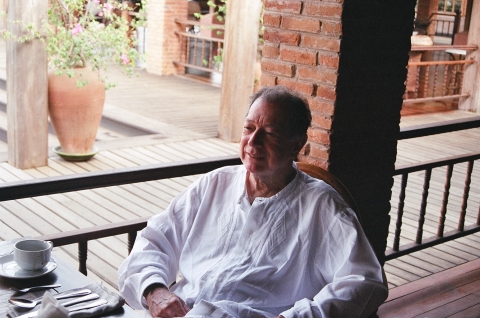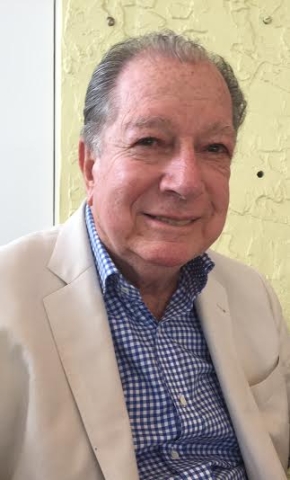
When the Iron Curtain crumbled in 1991, James “Jimmy” Greenfield seized a once-in-a-lifetime opportunity to advance press freedom in a region long dominated by Soviet propaganda. He launched the Independent Journalism Foundation (IJF), which helped journalists and media outlets in the Czech Republic, Slovakia, Hungary and Romania provide citizens with uncensored information they could never have gotten during the Cold War.
The International Center for Journalists (ICFJ) quickly became a vital partner to Greenfield – who died May 19 at the age of 99 – assigning dozens of its Knight International Journalism Fellows to work at the Independent Journalism Centers in the four countries. The Fellows trained journalists on everything from investigative reporting to media ethics to financial sustainability – at a time when journalists in the region had virtually no experience with any of those things.
“He was a visionary in building a corps of Eastern European journalists who could report vigorously on governments in these emerging democracies when that was unheard of,” said ICFJ Senior Vice President Vjollca Shtylla, who worked with Greenfield and IJF Vice President Nancy Ward when Shtylla was deputy director of ICFJ’s Knight Fellowships in the late 1990s. While Hungary especially has recently slipped back toward authoritarianism, “Jimmy’s legacy has endured in the hundreds of journalists in those countries who are still holding the powerful to account, often at great risk.”

Greenfield had just retired from a long career at The New York Times when he founded IJF with his then wife, Margaret Ann, and former Time Magazine executive Donald M. Wilson. At The Times, he was most famous for his role in the newspaper’s decision in 1971 to publish the Pentagon Papers over the objection of the Nixon administration – a decision that won The Times a Pulitzer Prize and set an important Supreme Court precedent for press freedom.
Greenfield’s long experience as The Times’ foreign editor provided the inspiration for his founding of what were often called “the Jimmy Centers” in the four countries (a term he did not use himself). He fervently believed that U.S. journalists, such as ICFJ’s Knight Fellows, had a responsibility to help their counterparts in newly free countries, who had little experience with how to report critically about leaders or how to run a business. And while visiting trainers taught workshops and provided mentoring, Greenfield also ensured that the centers were run by local experts. Over time, a new corps of Eastern European journalists and business experts took over the role of Knight Fellows and other international experts.
In 2001, Greenfield and his foundation expanded beyond Eastern Europe, establishing an Independent Journalism Center in Cambodia with a similar goal of building up the skills of journalists in Southeast Asia who were finding new opportunities to report freely.
One of ICFJ’s Knight Fellows, Lucinda Fleeson, said she was impressed by the non-stop activity in the Budapest “Jimmy Center” where she was assigned, as well as the other centers she visited later.
“Good organization and well-selected staff created opportunities for literally thousands of young journalists eager to transform the practice of free journalism in former Iron Curtain countries,” said Fleeson, a longtime journalist with the Philadelphia Inquirer. “The impact of the Jimmy Centers on an entire generation of journalists was and is immense.”